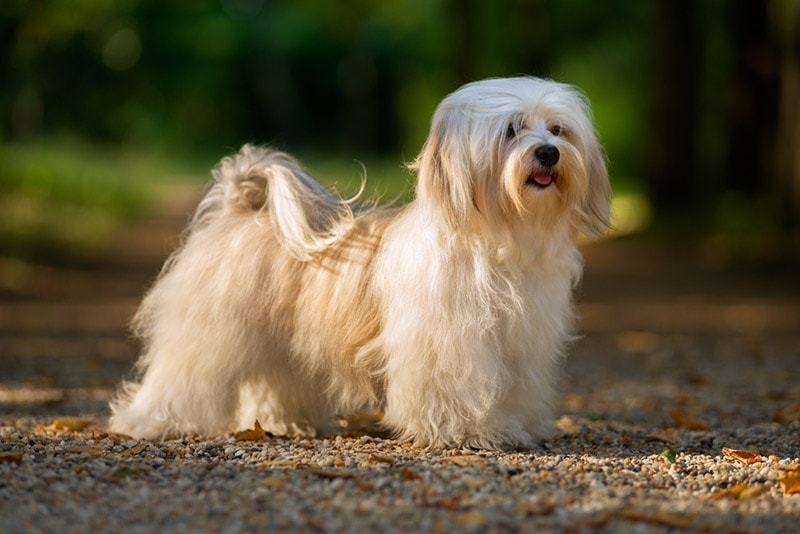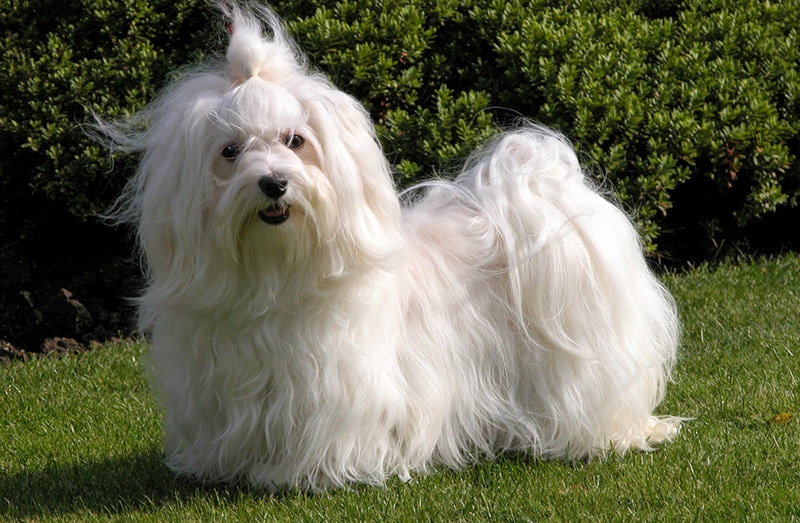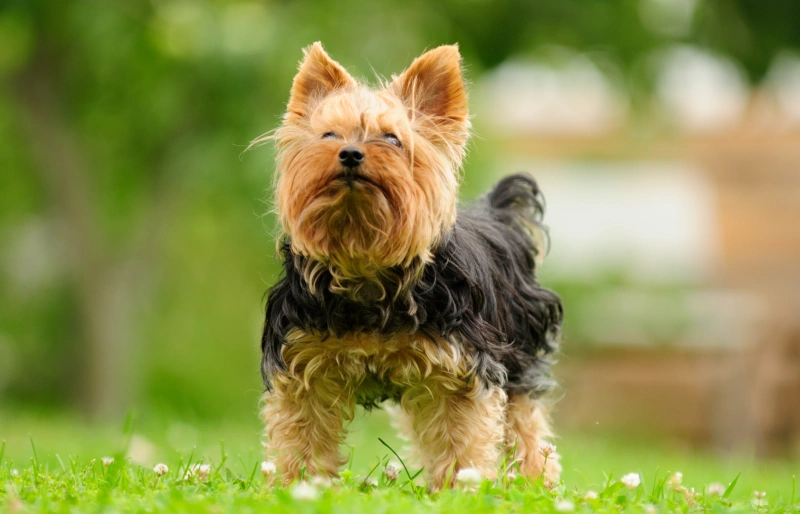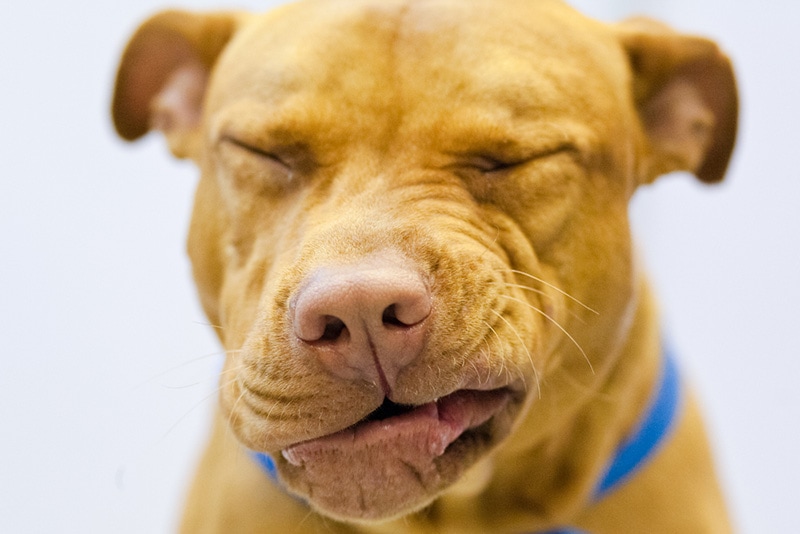Male vs Female Havanese: How Do They Compare? (With Pictures)
Updated on

Havanese dogs are outgoing, fun, and energetic, which is why any family would benefit from having this breed as part of their household. If you are considering getting a Havanese, know that this is an excellent family dog. But when choosing the pet, you’ll need to determine the sex that you’d like to get.
Overall, female and male Havanese are similar, but they do have a few minor differences, and knowing these may help you select the one that works for your family better.
Read on to learn everything about this breed, including how the males differ from the females, so you can determine which sex is right for you.
Visual Differences

At a Glance
- Average height (adult): 9–11 inches
- Average weight (adult): 8–13 pounds
- Average height (adult): 8–10 inches
- Average weight (adult): 7–12 pounds
Havanese 101
Havanese is a dog breed native to Cuba and belongs to the Barbichon family. These dogs have become extremely popular over the last decade because of their various benefits.
Havanese dogs have long, silky coats and come in all types of color combinations. They are small and not too heavy, which makes them perfect for people who need to keep pets indoors. Due to their fun-loving nature, vibrant energy, and curiosity, these dogs are excellent for families with kids. They are typically easy to train, adaptable, and energetic, so you’ll always have fun around them.
These dogs are also easy to care for and don’t require any special type of care as long as you provide them with regular maintenance. That means you should brush them every day, trim their nails weekly, and clean their ears and eyes regularly.

Male Havanese Overview
Personality / Character
Male Havanese tend to be easygoing, fun, and loving. They’re typically more active than females and have a longer puppy-like period of showing playfulness and being energetic. The males are also tolerant, laidback, patient, and great with kids. They typically require more attention than females, which you can use to your benefit for more cuddle time.
Due to their loving nature, male Havanese are quicker to bond with the family and easier to socialize. They are commonly less afraid of strangers and like being babied, which sometimes may turn into clingy behavior.
Male Havanese love to please their owner, but they are less likely to accept other animals compared to the female Havanese.
Training
Havanese dogs are smart in general, which makes them easy to train. However, training a male Havanese is typically easier than training a female because of their active, fun-loving nature. The males are energetic and love listening to their owners, making sessions easier.
Also, male Havanese are more patient and love people pleasing, so training should be no issue for them. Of course, remember to practice positive reinforcement, which has the best effect on canines.
Housebreaking is the only type of training that your Havanese may have issues with. This is a common problem for both Havanese sexes, which is why you should start potty training from an early age.

Health & Care
Both female and male Havanese need to have a proper high-quality diet and plenty of exercise, petting, and maintenance to live a long, healthy life. If you provide them with everything that they need, they will live for over 15 years.
Regularly take your Havanese to the vet for checkups and vaccines, especially if any concerns arise. Havanese can also experience an array of dental issues, so you should provide them with proper dental care.
These dogs have coats that need regular maintenance and brushing, and males commonly require more brushing than females. It’s also important to regularly trim their nails and clean their ears and eyes, regardless of their sex.
Breeding
Once your male Havanese reaches sexual maturity, he will likely show interest in breeding due to the hormonal changes happening in his body. When a male Havanese enters this phase of life, he may show territorial behavior by marking his territory and being slightly aggressive toward other dogs, especially males.
If you want to breed your male Havanese, it’s best to pair him up with another Havanese female. However, if you do not want to engage in breeding, you should neuter your Havanese, though you should discuss the process with your vet. Most of the time, neutering will prevent unwanted behaviors and possible health problems.
- Easy-going and laidback
- Excellent for families with kids
- Patient and easy to train
- Love to please their owners
- Hard to potty train
- Not afraid of strangers
- Could exhibit unwanted behaviors during the breeding period
Female Havanese Overview
Personality / Character
When it comes to their personality, female Havanese are slightly more aggressive and have more dominant traits than male Havanese. They do have easygoing and fun personalities but tend to be more protective of their owners. Also, they tend to be fussier when things don’t go their way and may even show attitude when things are not as they want them to be.
Female Havanese are slightly less playful than males and are more afraid of strangers than males. They require the same level of attention as males but tend to exhibit less clingy behaviors.
Most of the time, the female Havanese are more independent than males and better at accepting other animals.
Training
Training female Havanese dogs is similar to training males, though the training may flow slightly smoother because females are more focused. However, it can also be more challenging because they tend to be more stubborn than males, but they do pay more attention.
Females will likely learn quicker, but they will still have an issue with housebreaking, like male Havanese dogs do. Since potty training can be tough, it’s essential to start it from an early age.

Health & Care
When it comes to health and care, female Havanese dogs require the same things as males, including high-quality food, regular walks, vet check-ups, and proper grooming.
A female Havanese requires regular grooming, such as brushing, nail trimming, and cleaning the ears and eyes. She will also need proper dental hygiene and enough activity to maintain good health. As long as you provide your female Havanese with love and care, she will be with you for many years to come.
Breeding
The breeding period represents one of the biggest differences between male and female Havanese. Havanese females typically start their heat cycle at around 6 months old, but it’s not recommended to breed them until they are 18 months old due to potential health issues.
After the first heat cycle, a female Havanese will have two cycles every year, which last for 2–3 weeks. However, if you don’t plan on breeding your female Havanese, it’s best to spay her to prevent possible problems. Spaying typically reduces the chances of cancers and tumors and prevents unwanted behaviors and heat cycles.
- Friendly and loving
- Protective
- Independent
- Harder to train than males
- Occasionally fussy
Which Gender Is Right for You?
When it comes to choosing between male and female Havanese, it all comes down to your preference. The males and females are similar in their temperament, behavior, and health, so you won’t make a mistake regardless of the sex that you choose.
However, if you have kids and are looking for a more protective dog, the female Havanese can be the better option. Similarly, if you want a slightly more laidback dog, the male Havanese might be ideal.
Remember that there’s no set rule, as each dog can have a different personality, regardless of sex. Most Havanese will love to be around you and your family and want to play and spend quality time with you, so you’ll be fine with either of the sexes.
See also: Havapoo vs Havanese: How Are They Different? (With Pictures)
Featured Image Credit: Sandra Huber, Shutterstock













